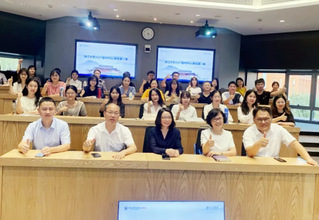题 目:Consistent or inconsistent acts after doing good deeds? A preliminary conceptualization and test of a moral elasticity quotient
报告人:陈晓萍教授,华盛顿大学
主持人:谢小云教授,体育外围平台APP
时 间:2016年12月22日(周四)下午13:30-15:30
地 点:体育外围平台APP紫金港校区行政楼302会议室
报告人简介:
Prof. Chen is a Professor in Department of Management and Organization, Michael G. Foster School of Business, University of Washington . Her research interests include creativity, organizational behavior, decision making, teamwork, leadership etc. She serves as the editor-in-chief for Organizational Behavior and Human Decision Processes and Management Insights. She has published articles in top tier journals, such as Academy of Management Journal,Academy of Management Review,Journal of Applied Psychology,Organizational Behavior and Human Decision Processes.
Abstract:
Drawing on the adaptation-level theory and the literatures on moral decision making, we propose and formulate a moral elasticity quotient (i.e., significance of good deeds / moral ideal standard) that regulates people’s moral consistent and inconsistent (licensing) behaviors. Specifically, when the moral significance of past good deeds is below one’s moral ideal standard (elasticity quotient < 1), consistent good deeds will follow; whereas when the significance of good deeds outweighs the moral ideal standard (elasticity quotient > 1), people will feel licensed to engage in morally questionable behaviors. Moreover, we propose that ethical leadership would moderate the relationship between moral elasticity quotient and subsequent consistent or licensing behavior because it elevates the moral ideal standard. Results from three studies with diverse methodologies (a lab experiment, an interview study, and a multi-sourced, three-waved field survey) provide convergent evidence to our theoretical model. We discuss the theoretical and practical implications of our findings in the organizational setting.
欢迎感兴趣的老师和同学参与研讨。






